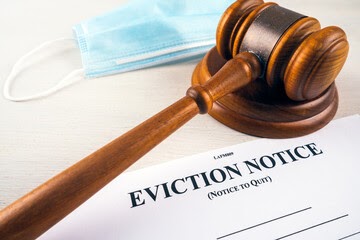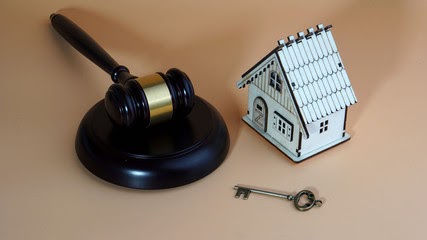Table of Contents
How to Evict a Tenant in Palm Beach
 Possession of unauthorized pets is one of the main reasons why tenants are evicted in Palm Beach. A landlord may prefer reaching an agreement with their tenants to avoid evictions and unnecessary legal steps. There are many other reasons why a tenant may be evicted from their premises. They include the following:
Possession of unauthorized pets is one of the main reasons why tenants are evicted in Palm Beach. A landlord may prefer reaching an agreement with their tenants to avoid evictions and unnecessary legal steps. There are many other reasons why a tenant may be evicted from their premises. They include the following:
- Violation of the lease contract
- failure to pay rent
- Improper maintenance of the rental property
- Causing disturbance
- End of the agreed leasing period
- Causing damages
The Eviction Process
The process of evicting a tenant in Palm Beach is stipulated in the laws. However, the legal costs involved should encourage landlords to avoid unnecessary evictions. It is recommendable for landlords to seek alternative solutions to resolve any disagreements that they may have with their tenants.
It is important to note that in case of an eviction, landlords are restricted by the laws in Florida against forcefully evicting their tenants, cutting off utilities, or blocking their access to the rental unit. The sheriff is the only official office to conduct an eviction once a court order or a Writ of possession has been issued.
A landlord should, at all costs, avoid evicting a tenant without involving a jury. This may result in serious legal consequences. The landlord can be heavily penalized; sometimes, the penalty can be the imposition payment of three months’ rent.
It is essential to avoid any unnecessary action that does not benefit your business. A three-day notice should include the following:
- Date of delivery of the Notice
- Means of delivery
- The landlord’s intention to seek legal action, including eviction in case a tenant fails to pay the rent
 The following are steps that should be followed during an eviction:
The following are steps that should be followed during an eviction:
- Issuing of a Three-day Notice. The notice should notify the tenant either to pay the due rent or to evict the premises.
- File a complaint with the county court to gain possession of the property.
- Issuing of a court summons
- Issuing of a court order and writ of possession
- Notification of the office of the sheriff. This is the only office legally authorized to take an eviction action.
Landlord-Tenant Disputes
Representing both tenants and landlords to assess the disagreements’ claims and control their rights in accordance with the terms of their lease agreement. There are various reasons why tenants and landlords may dispute a commercial space, such as eviction and non-payment of rents and the commercial lease itself.
The Commercial Lease
Under Florida’s laws, the tenant and landlord of business space are viewed as equal parties signing an agreement. Unlike residential contracts, landlords usually have more authority and power. The commercial tenant has the right to negotiate the terms of the lease, withdraw, or add conditions where necessary.
Since the commercial tenants have more advantages than the residential tenant, Florida’s laws do not offer much defense to the retail tenants regarding the landlord’s actions.
Non-Payment of Rent
One of the most common litigation issues by commercial tenants and landlords under the Broward county eviction is the non-payment of rent.
When tenants believe that the landlord’s obligations have not been met, they tend to withhold rent. For instance, when the landlord fails to repair or maintain the property, the tenants may opt not to pay the rent on time until the landlord does the repairs entirely. Typically, the commercial lease stipulates who is responsible for the repairs. However, if the parties cannot agree, ultimate litigation may be necessary.
Palm Beach County Evictions
 Evictions may be due to various reasons, which a tenant-landlord lawyer in Brian Kowal Law Firm can explain. When tenants fail to pay the rental amount agreed upon, they can be evicted. Staying in a commercial space for an extended period instead of the lease agreement may lead to eviction. Ongoing disputes between the commercial tenant and the landlord may also lead to the lease agreement’s termination.
Evictions may be due to various reasons, which a tenant-landlord lawyer in Brian Kowal Law Firm can explain. When tenants fail to pay the rental amount agreed upon, they can be evicted. Staying in a commercial space for an extended period instead of the lease agreement may lead to eviction. Ongoing disputes between the commercial tenant and the landlord may also lead to the lease agreement’s termination.
Before filing Palm Beach county eviction grievances under the Florida laws, the landlord must give a three-day notice to the court’s tenants. The tenants are then given a five-day grace period to respond to the notice. Failure to respond to the eviction notice guarantees an automatic eviction of the tenant by the commercial landlord.
Eviction Lawyer Palm Beach
Disputes between commercial tenants and landlords under the Palm Beach eviction are most likely to be litigated, and the help of Brian Kowal, P.A may be vital.
Some of the disagreements between tenant and landlord may include evictions, non-payment of rent, title disputes, sublet and assignment disputes, and conflicts over options to renew the lease contract, breach of contract claims disagreements over the fixtures on the property, among many other reasons. Call us at 954-990-7552 for the much needed legal help
